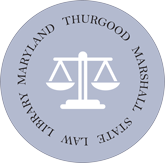When looking for genealogical data you will find a mind-boggling amount of resources. Inevitably, you will be asked by some of these resources to pay a fee, register personal information, subscribe, and so forth. Always remember to thoroughly research any organization that requests payment or personal information from you. With that caveat in mind, consider some of the following types of data sources in your family history research (and be aware that the list below is not exhaustive):
I. People
- Relatives*
- Family friends*
- Neighbors*
- Record keepers/workers (e.g., librarians, archivists, cemetery caretakers)
- Genealogical or historical organization members
- Professional genealogists**
*A special note with respect to relatives, family friends, and neighbors: Many genealogical research guides highlight the fact that not everyone is comfortable with talking about the past. Sometimes, unpleasant occurrences will discourage someone from attempting to remember their past or particular individuals. Keep this in mind if you intend to interview relatives, friends of relatives, neighbors, or similar types of people. Genealogical research guides advise us to be alert to signs of discomfort and, if seen, stopping the interview.
**Professional genealogists are not required to be licensed. However, you may wish to consult the professional standards and/or code of ethics of professional organizations to see what is generally expected from a professional genealogist. See the Code of Ethics of the Association of Professional Genealogists for an example.
II. Sources on the Internet
- Internet linking websites like Cyndi's List (a free site).
- Commercial websites that provide genealogical information or even DNA testing (again, remember to research these types of websites before submitting money or personal information).
- Free websites, like Family Search.
- Government websites like the Maryland State Archives or the United States Department of Veterans Affairs' Nationwide Gravesite Locator.
- Websites that focus on a particular group of people, e.g., AfriGeneas.
- Internet search engines like Google.com
III. Places
- Libraries (keep in mind that there are many types of libraries to consider: Law libraries, state/county/city public libraries, university libraries, libraries in other states and countries, and even private libraries like the Anne Arundel County Genealogical Society's Kuethe Library).
- Archives & Special Collections (in addition to resources like The National Archives, the Maryland State Archives, and the Special Collections of the Thurgood Marshall State Law Library, there are also archival and Special Collection resources at many university libraries. For example, Frostburg State University offers The J. Glenn Beall Archives as well as a “Special Collections Room.” Both are located in the Lewis J. Ort Library).
- Cemeteries (remember that some cemeteries are on private property. If this situation applies to you, see the website of the Office of Cemetery Oversight for information).
- Funeral Homes
- Museums
- Courthouses
- Churches
- Historic Sites
- Historical Societies
IV. Records You Might Find Within Categories I-III Above, Or Elsewhere
- Birth certificates
- Baptismal records
- Pension records
- Death certificates
- Obituaries
- Manuscripts
- Land records
- Bibles (family records were/are often written in Bibles)
- City directories
- National, state, and local histories
- Immigration, naturalization, and citizenship records
- Probate records
- Wills
- Tax records
- Maps
- Military records
- Voter registration records
- Adoption records
- Passports
- Family photos
- Artifacts (e.g., a wedding gown, an old watch, a military uniform)

